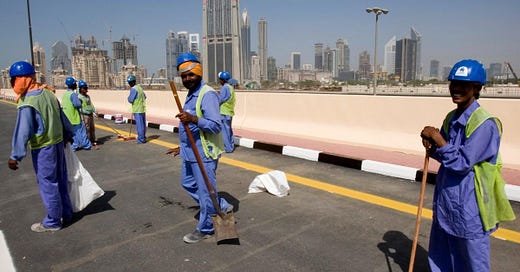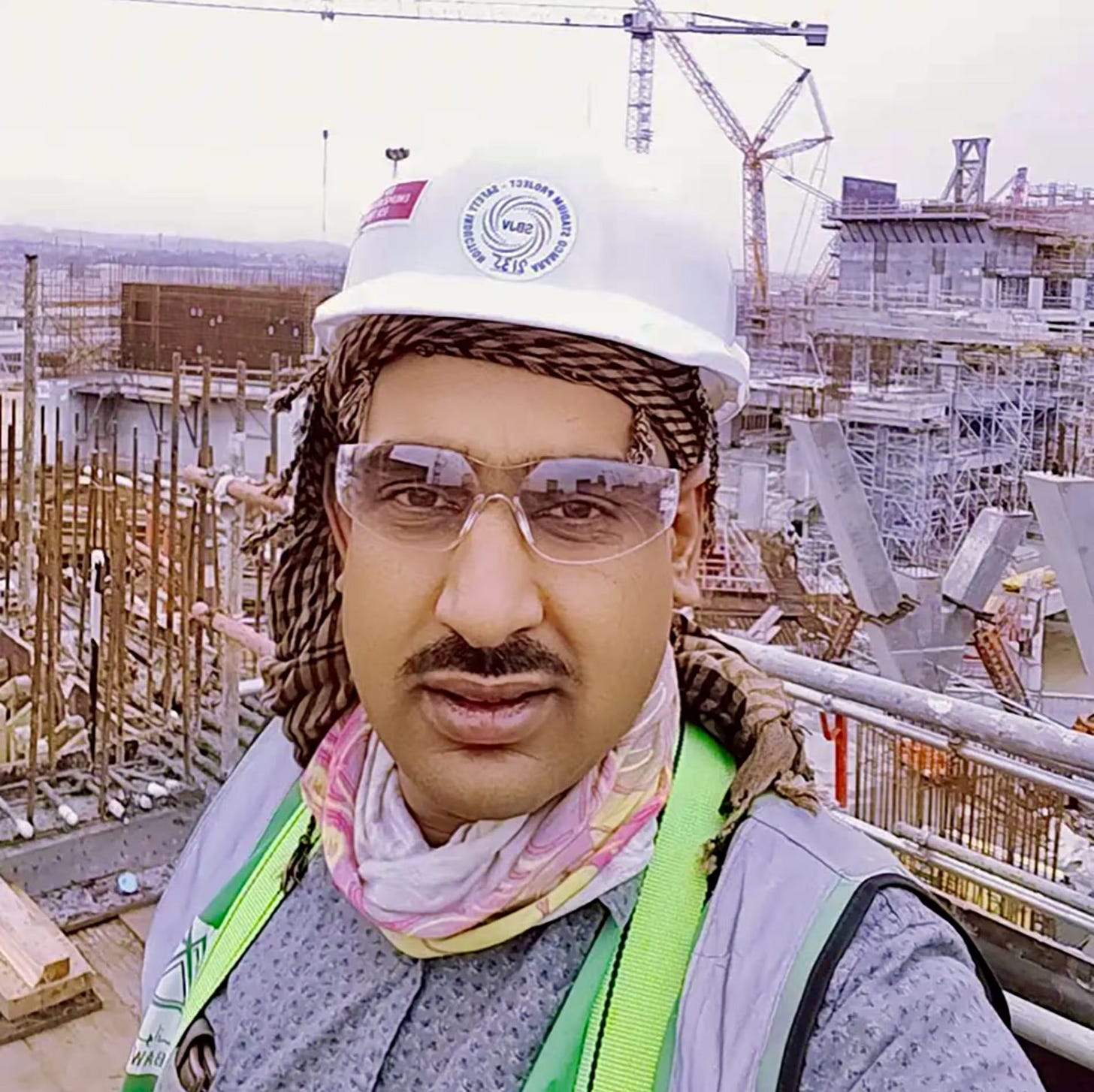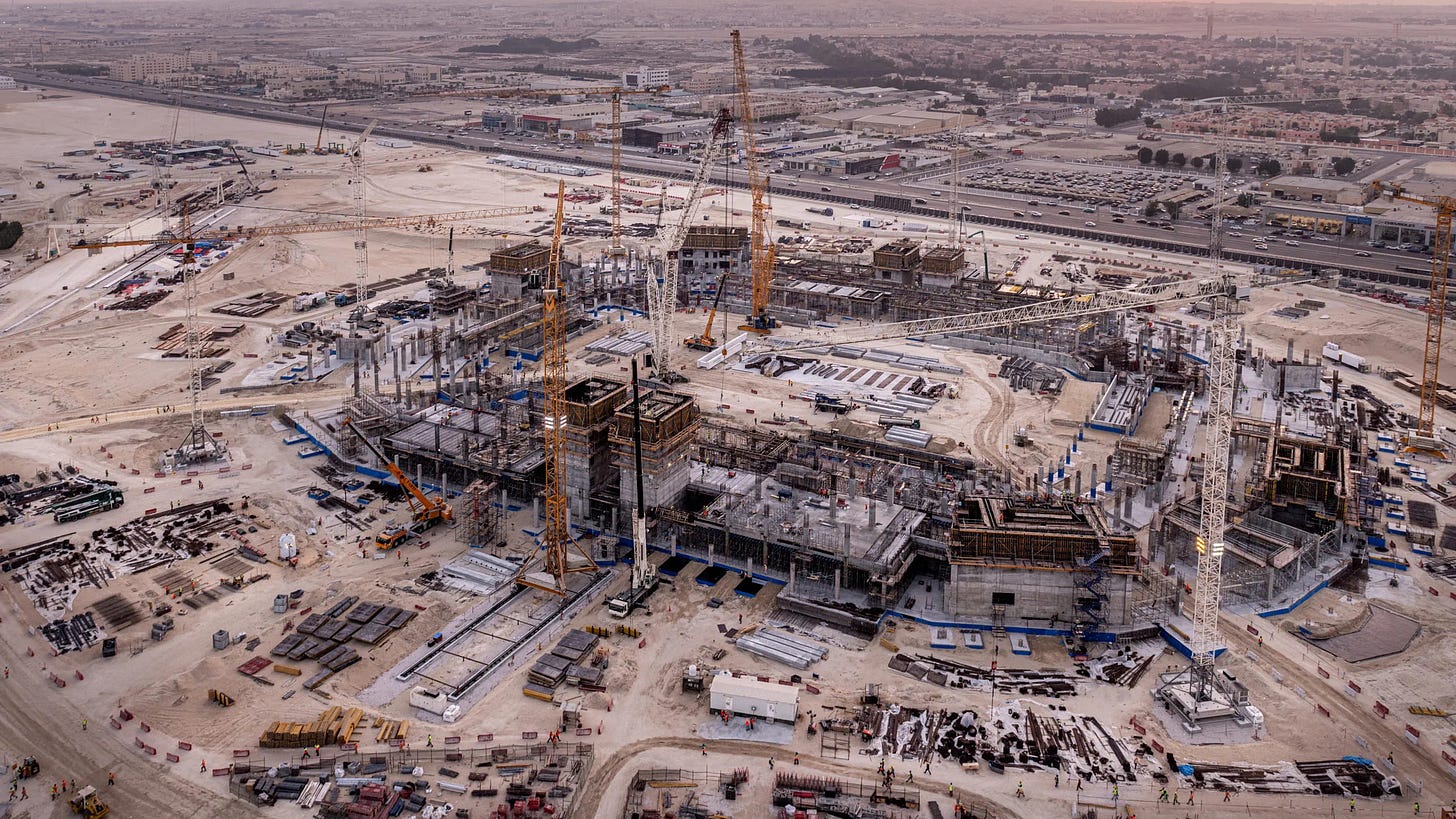On March 21, The Guardian revealed the first confirmed death of a migrant worker in a construction sites of the 2034 World Cup. His name was Muhammad Arshad, a Pakistani foreman in his mid-30s with a wife and three sons aged between two and seven: he fell from an upper level while building the Aramco Stadium in Al Khobar on March 12. Besix Group, a Belgian construction multinational operating in the site through its subsidiary Six Construct, stated that Arshad “was not connected to an anchor point at the time of the incident and fell”. According to a source of The Guardian, the company called all the workers of the stadium to a meeting, ordering them to delete any video footage of the incident and not to talk to anyone about it.
Sadly, Muhammad Arshad is not the first victim of the great Saudi project Vision 2030, with which the World Cup is deeply connected. Many workers suffered human rights violations and maybe faced death building roads, hotels, and other infrastructures in the Gulf country that will be very useful during the World Cup. And is not easy to evaluate how many people could be affected by the harsh working conditions in the construction sites all over the country which will contribute to realize the most important football event in the world. It is the same thing that happened in Qatar for the 2022 World Cup: the country does not communicate the exact numbers of the deaths of the migrant workers, so investigative journalists have to verify the data coming from the countries of origin of the workers (mainly in South Asia) and count how many of these migrants died in Saudi Arabia since the works started. But embassy records are limited: they don’t usually tell the cause of death (especially if the authorities have not conducted an autopsy), nor what type of construction site the worker was employed on.
Qatar authorities stated that there were just 3 work-related deaths around the event, but in November 2022 Hassan al-Thawadi, secretary general of Qatar’s Supreme Committee for Delivery and Legacy, admitted that the numbers were “between 400 and 500”. However, independent investigations estimated at least 6,500, or even 15,000 deaths. How many people are already died because of Saudi Arabia 2034?
What do we know about what migrant workers suffer in Saudi Arabia?
Even if the World Cup was officially awarded last December, the construction works had already began, since Saudi Arabia was the only candidates for hosting the competition. In November 2024, the Daily Mail published the first reportage on the labour conditions in one of the sites of the World Cup: journalist Pete Pattisson wrote about “10-hour shifts in the ferocious heat”, with most of the workers paid less than £2 an hour (€2.4 a hour). They contracted a huge debt to pay rogue agents to get their jobs, so for the first two years in Saudi Arabia they have to “work for free”, says one of them. Some of the employers also withhold part of the wages, to prevent the workers quit their job and come back home.
During the summer, they have to endure shifts even at 45 degrees, After that, they are taken back to their accommodations: squalid and dirty rooms, where six or seven people are crammed into a tiny space. They keep their cooking pots and personal belongings under the beds, and prepare meals on the floor or in grimy kitchens. “In almost 20 interviews, these workers expressed a deep sense of powerlessness and resignation, trapped between poverty in Bangladesh and exploitation in Saudi Arabia”, wrote Pattisson. This investigation was conducted at the Aramco Stadium construction site, the same were Muhammad Arshad died in March 2025.
At this moment, Pete Pattisson is the most active journalist on this topic on a global level. In December 2025 he published another reportage on The Guardian, telling the story of Shahadat, a young man who worked in Saudi Arabia to provide money for his family back in Bangladesh: he died in his bed, and Saudi authorities failed to explain the cause. It is not clear in what construction site Shahadat worked, but since everything that is built today in Arabia is somehow connected to the World Cup, his story can backdate the first 2034 WC-related death.
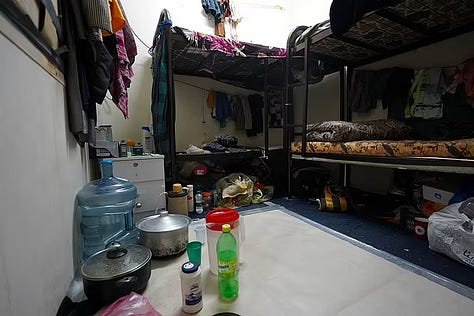
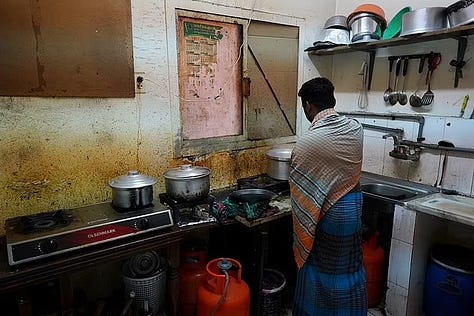
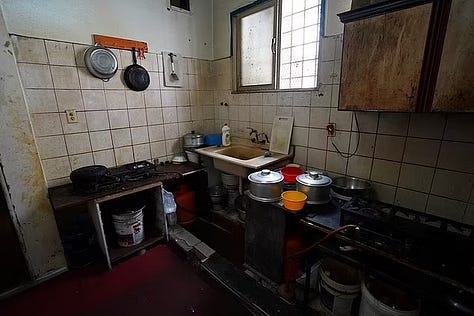
How many workers have already died in Saudi Arabia because of the World Cup?
It's not about just one or two people, unfortunately. Muhammad Arshad and Shahadat are the only two names that we know so far, thanks to Pattisson’s work, but numbers tell a different story, which will only get worse in the coming years, if nothing is done to prevent it. Another article wrote by the British journalist for The Guardian tells that between 2008 and 2022, at least 13,685 Bangladeshis died in Saudi Arabia, according to Bangladeshi government records. Even if these deaths are not directly related to the World Cup, they can give an idea of the vastness of the phenomenon. 76% of deaths of these workers were recorded as “natural” in Bangladeshi records, but they are based on documents provided by Saudi authorities. “FIFA’s reckless decision to award the 2034 World Cup to Saudi Arabia without ensuring adequate human rights protections are in place will put many lives at risk” said Steve Cockburn, Amnesty International’s Head of Labour Rights and Sport.
In November 2024, ITV documentary Kingdom Uncovered: Inside Saudi Arabia denounced that more than 21,000 migrant workers (coming from India, Bangladesh and Nepal) seems to have died since 2017 in the construction of Vision 2030 projects. These sites includes the ambitious tech-city The Line, which will host the NEOM Stadium, one of the most important venues of the World Cup.
The Riyadh’s National Council for Occupational Safety and Health contested the findings of the ITV investigations, talking about “unfounded statistics lacking credible sources”. Saudi authorities said that the work-related fatalities rate in the country is 1.12 per 100,000 workers: “This figure positions Saudi Arabia among the lowest globally in terms of work-related fatalities”. It is true: according to this data, the Gulf country is safer for workers than Belgium (1.3), Norway (1.4), Australia (1.6), Spain (1.9), France (2.5), Italy (3.4), United States (5.2) and so on. But the problem is that Riyadh considered many of the migrants deaths - caused by extreme heat, lack of water and food, poor living conditions while working in the country, etc. - as “natural”.
How far along is the prevention of workplace deaths in Saudi Arabia?
The National Council for Occupational Safety and Health stated that “the safety and well-being of workers are fundamental priorities in all regulations and laws implemented in Saudi Arabia”, and that the International Labour Organization (ILO) aknowledged the progress made by the Gulf country on this issue. Yet in June 2024 the Building and Wood Workers’ International Union (BWI) filed a forced labor complaint against Saudi government, denouncing widespread wage theft and other abuses.
In January 2025, the African Regional Organisation of the International Trade Union Confederation (ITUC-Africa) urged FIFA to increase protection misures for migrant workers in Saudi Arabia, addressing especially the issues of the end of the kafala system and allowing independent monitors of working conditions. In a letter seen by The Guardian, FIFA’s general secretary, Mattias Grafström, replied that Saudi authorities had already made sufficent commitments, promising to establish “a workers’ welfare system to monitor compliance with labour rights standards for tournament-related workers”. Yet, the British newspaper underlined that in the official Saudi bid document there is no mention of this reform; instead, it talks about a “working group” formed by Riyadh government’s members and focused on defining “a governance structure to oversee implementation of the [human rights] strategy”.
In another letter wrote by FIFA’S Director of Media, Bryan Swanson, to The Guardian in February 2025, the global football governing body assured that it “would work with counterparts with the aim to ensure commitments are upheld”. Despite all these promises, no concrete steps forward have been announced on this front yet.
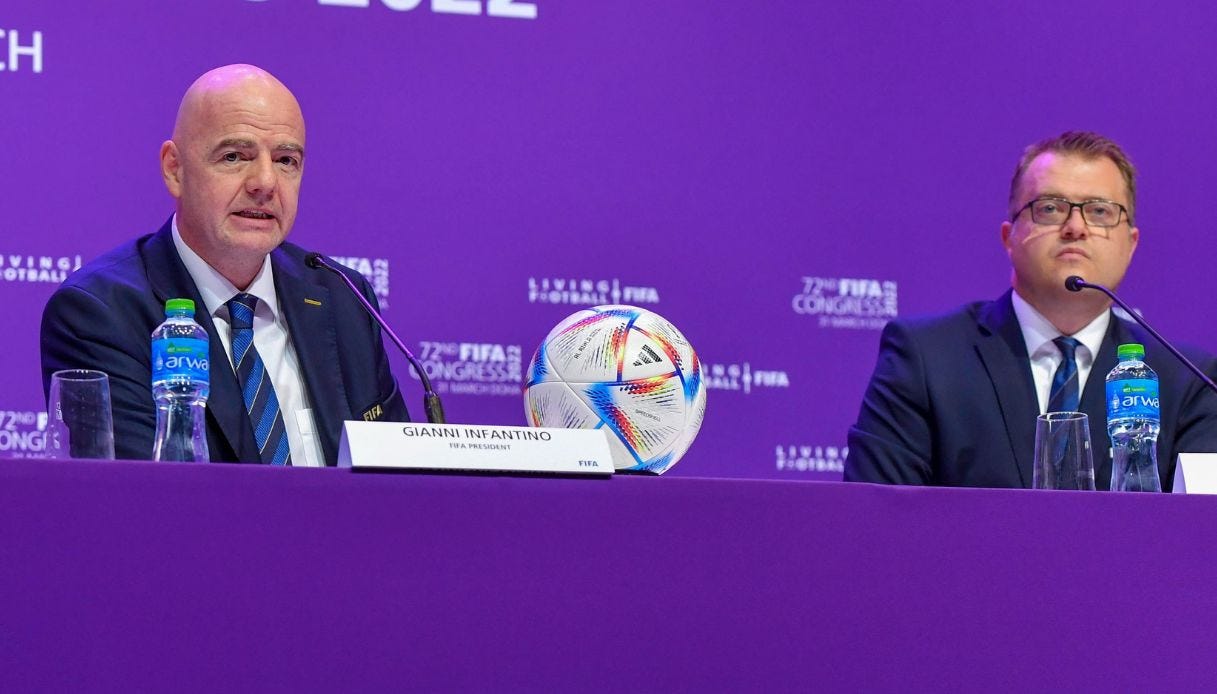
Deaths are not the only thing that matters
As we saw in the Qatar case, the issue of the deaths of migrant workers attracts great interest around the world, but it is just the tip of the iceberg. Given the difficulty of calculating the exact number of victims related to the World Cup, this topic risks lending itself to controversy and ambiguity.
We should not focus only on migrant workers’ deaths, but rather on the horrible circle of abuses these people have to endure in Saudi Arabia, building the infrastructures needed for the World Cup and the wider Vision 2030 project. Sometimes, in the worst cases, these sufferings can lead to death, but in most cases this does not happen. And yet this does not make the working conditions in the Arab country any less serious. The real problem is the exploitation; deaths are just one of its possible outcomes.


